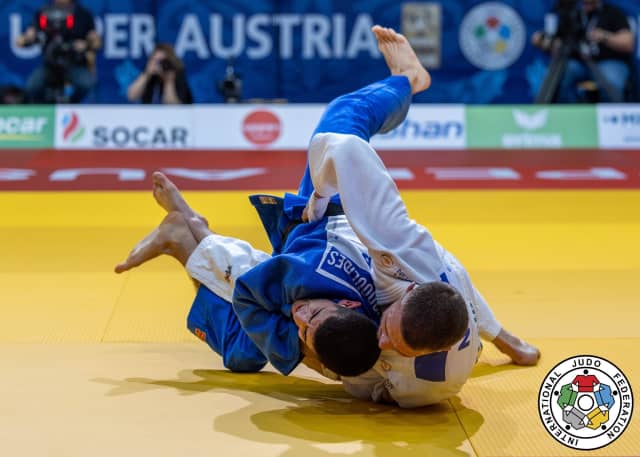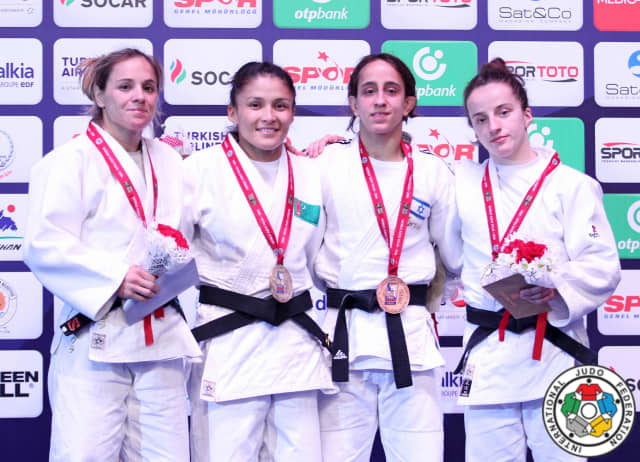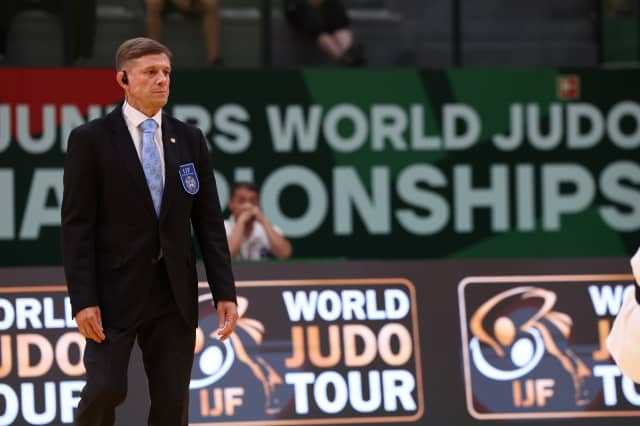Petros Christodoulides (CYP) is ranked 58th in the world at seniors and took his first World Judo Tour medal in Linz this year. At only 18 he has amassed significant experience from senior events all over the world, putting the junior tour on hold, somewhat. In fact, this junior world championships is only his third junior event of 2023 but he is clear about it’s importance.
“Seniors is for sure much stronger but the juniors are really competitive too. I need to fix some mistakes here and I am looking forward to one more year in the age category. It’s important to take this junior step wholly and complete it and be more ready so that when I really transition fully into the seniors, I have done all of the work to be well prepared and competitive at that level.”
Coaches are also positive about the need to work across the different levels. Laura Gomez (ESP), herself a European and World Judo Tour medallist, loves coming back to juniors too, “It’s so nice to come back to juniors because it’s a special kind of freedom. They have all the time in the world to develop both their style and their results. Sometimes I even work with cadets and it’s so much fun. The juniors are half adult and half child so it’s the best category, the best of everything. They can learn and enjoy and when they are ready in the future they will gain selections and medals and Olympic team places.”
Joao Neto (POR), also working with young athletes in Odivelas, said, “I like juniors because the young ones’ style is still developing and actually they are developing our sport and pushing new limits. We have to keep learning with them. They will be the big stars of the future.”
Andre Mariano Dos Santos (BRA), Olympic referee, is also officiating in Portugal and takes only positives from working at this level, “All the time judo is changing. It’s not important which age category we are working in; at every level we have big opportunities to learn and practise. Judo is judo and we have to study always and be on the tatami. It is good to keep this variety of environment to ensure my learning is always fresh and up to date.”
The consensus is absolute! From all roles and from all levels it can be agreed that the junior stage is important, necessary and fun; a great mix and a recipe for success at the highest level.



